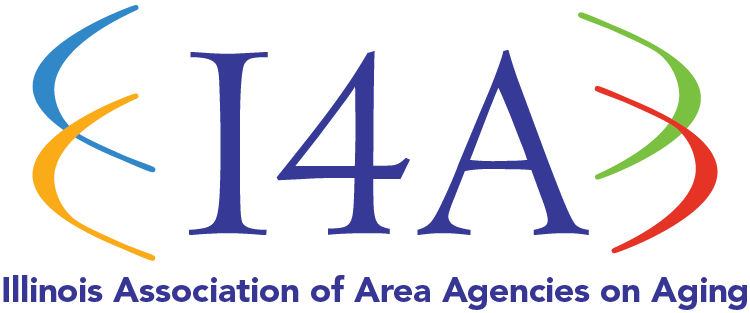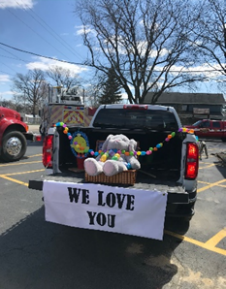Illinois Aging Network Alert June 05, 2020

Illinois Aging Network Alert
June 05, 2020
ISSUE: Area Agencies on Aging Home Delivered Meals Programs Meeting the Needs of Older Adults during COVID-19 pandemic emergency
Older adults face higher risks of contracting COVID-19 and/or experiencing complications, particularly if they also have chronic medical conditions. All Illinois older adults were urged to remain at home during this pandemic emergency. Every home delivered meal provider is experiencing a new wave of older adults in need of nutritious meals. Governor Pritzker and the Illinois General Assembly and the governors of Illinois have recognized the importance of providing nutritious meals to older adults who are homebound by increasing state funding for this important program. Thank you for recognizing and addressing this need.
All Home Delivered meal agencies in Illinois accepted this challenge, they built a whole new delivery system with the foundation being the safety of participants, the basic nutritional needs of older adults and the safety of their employees. They found solutions to many logistical problems to safely deliver meals to an at-risk population while expanding the number of older adults served and the number of meals served. More volunteers are being utilized, routes have increased in rural areas, and more safety measures were put in place. As face to face contact with participants could not be maintained due to COVID-19 daily contact by phone was adopted to assure older adults have one friendly caller regularly.
Statistics show how quickly Home Delivered Meal Providers built a new delivery system that safely serves more older adults’ nutritious meals:
From March 30 to June 2, 2020, the Illinois AAAs hav
- Delivered 2,042,837 home delivered meals (+ 53% since April)
- Received 10,274 new referrals for clients needing meals
- Provided 259,212 shelf stable meals to older adults across the state (Source: IDOA COVID-19 Daily Meal Report)
Area Agencies on Aging are proud to partner with all Illinois Home Delivered Meal providers! You are our heroes! THANK YOU!
IMPACT
Quotes from HDM drivers and volunteers plus statements by new participants
“One gentleman had tears in his eyes on the first day we delivered a meal to him. He said he was scared and was very thankful for this food.”

“A kitchen volunteer puts a personal label on each hot lunch lid, and then decorates the lids with emoji stickers to bring a chuckle to the seniors. “They are so lonely! They call us and start crying, and thank us for these extra touches, because they know we are thinking about them.”

Meals on Wheels Staff and Volunteers organized an Easter Parade past the homes of the senior home delivered meal recipients on Friday, April 10, 2020. Seniors waved from their porches, many with tears in their eyes.

Jason Gibbons, along with the Men in Black staff and family, have been delivering frozen meals to our homebound seniors since early March. Jason, without hesitation, was willing to be called at any time if we were short volunteers. While he typically has delivered meals with his staff, he has his family members help him deliver on unexpected calls. Jason recalls the countless thank you’ s and tears from seniors he has delivered meals. One senior said the Meals on Wheels drivers are the only people they see all day, and the five-minute conversations mean the world.
Congregate sites that closed and are now serving home delivered meals:
John, age 63 said: It has helped him keep away from crowds. And he gets a good nourished meal. He appreciates meals being delivered. And it also makes sure he is safe and okay.
Ray, age 93 said: It’s not only nice to get a meal, but it’s nice to have someone call to say “HI” and talk about the weather.